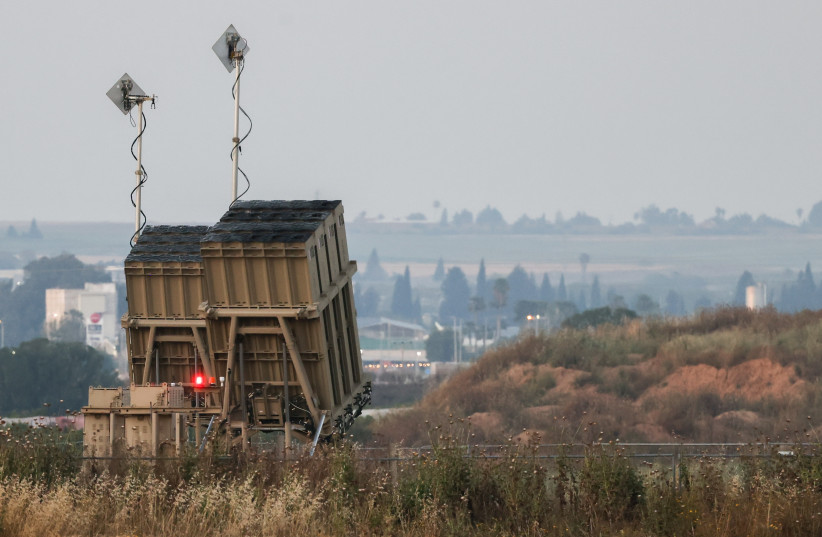A technical defect in Iron Dome on Tuesday afternoon led to a small number of rockets penetrating Israel's "missile shield" and some of the more serious injuries on the Israeli side, a preliminary IDF probe revealed on Thursday.
The IDF said that its rocket defense unit quickly noted and dealt with the technical issue and restored full effectiveness, which was reflected in an overall performance of 90.5% effectiveness over the full conflict period of Tuesday and Wednesday.
The initial report came after a dispute between IDF revelations earlier in the week that it was probing why the Iron Dome performed less well on Tuesday afternoon versus a statement by IDF Chief Spokesman Brig. Gen. Daniel Hagari Wednesday morning that all was well with Israel’s prized rocket defense system.
Iron Dome effectiveness rating
Until last month, there was a general progression of improved Iron Dome effectiveness against Gaza rockets.
In November 2012, Iron Dome was found to be 85% effective, a number that jumped to 90% in 2014.

There was a drop in May 2019 back to 85%, but in May 2021 the effectiveness was back up to 90% and in August 2022, the missile defense system hit a record 96%.
Hagari said Wednesday morning that the effectiveness against the more than 100 rockets between Tuesday and Wednesday was still around 90%.
However, during the Tuesday afternoon volley of around 26 rockets from Gaza, the effectiveness of shooting down the rockets which were actually threats was closer to 60%.
That was also the time period when some of the worst hits and casualties on the Israeli side occurred.
The discrepancy was partially explainable since Hagari appeared to be referring to the full 100 rockets over the 30-hour period, whereas criticism and the internal probe seemed focused on specifically the afternoon volley of rockets from Gaza.
The IDF's announcement may put to rest any theories that the IDF had not moved all of its Iron Dome batteries into place or did not have those batteries fully staffed in the afternoon and may have even been slightly fooled to let its guard down after only a few rockets were fired Tuesday morning.
In contrast, by Tuesday evening and Wednesday morning, the IDF had most of the day to prepare and also was expecting more rockets from Gaza because the Israeli air force had plans to strike the terror groups’ assets.
This same readiness issue could have explained why the IDF hit a record level of effectiveness in August 2022. That operation, more than many others in the last decade or so, was pre-planned carefully by Jerusalem as opposed to falling into an unwanted war by accident in some other instances.
However, sources indicated to the Jerusalem Post on Wednesday that general readiness was not the reason for the lower performance of Iron Dome Tuesday afternoon.
